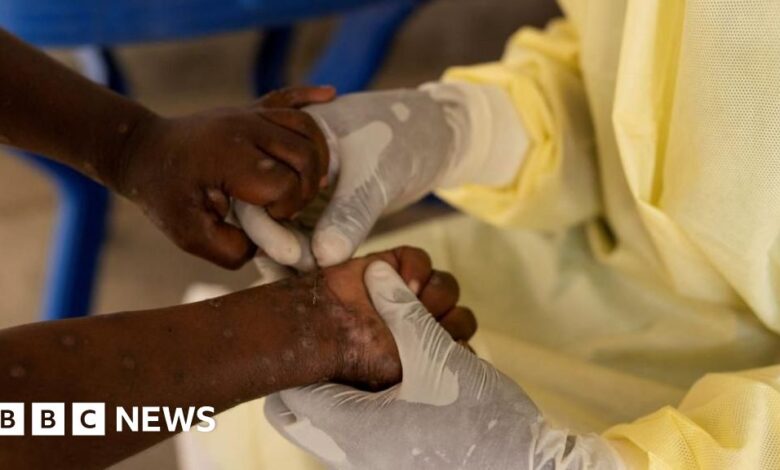First case of more contagious mpox detected outside Africa

The Swedish public health agency has recorded the first case of a new variant of mpox outside the African continent.
The agency said the person was infected while traveling in an area of Africa that is currently experiencing a large outbreak of the Clade 1 mpox strain.
The news comes just hours after the World Health Organization (WHO) announced that the mpox outbreak in parts of Africa was now a public health emergency international attention
At least 450 people died in the initial outbreak in the Democratic Republic of Congo and the disease has since spread to parts of central and eastern Africa.
The infected person sought care in the Stockholm region and the fact that they were treated in Sweden does not mean there is a risk to the general population, said Olivia Wigzell, acting director of Sweden’s public health agency.
Mpox, formerly known as monkeypox, is transmitted through close contact, such as sexual intercourse, skin-to-skin contact, and talking or breathing near another person.
The disease causes flu-like symptoms, skin lesions and can be fatal, with four in 100 cases dying.
There are two types of mpox, Clade 1 and Clade 2. Although Clade 2 caused a public health emergency in 2022, it is relatively mild and about 300 cases have been identified in Sweden.
The Swedish Public Health Agency said Group 1 is likely to be associated with “a higher incidence of more severe disease course and higher mortality”.
Clade 1 is typically spread through close household contacts and often infects children, while the milder variant is mainly spread through sexual contact, the report said.
Symptoms typically appear 6-13 days after infection, with fever and headache, rash or sores, and muscle aches, according to the European Centre for Disease Prevention and Control.
Most people experience mild to moderate symptoms and then recover completely, but people with weakened immune systems are at higher risk.




